Photo: Vince Aung
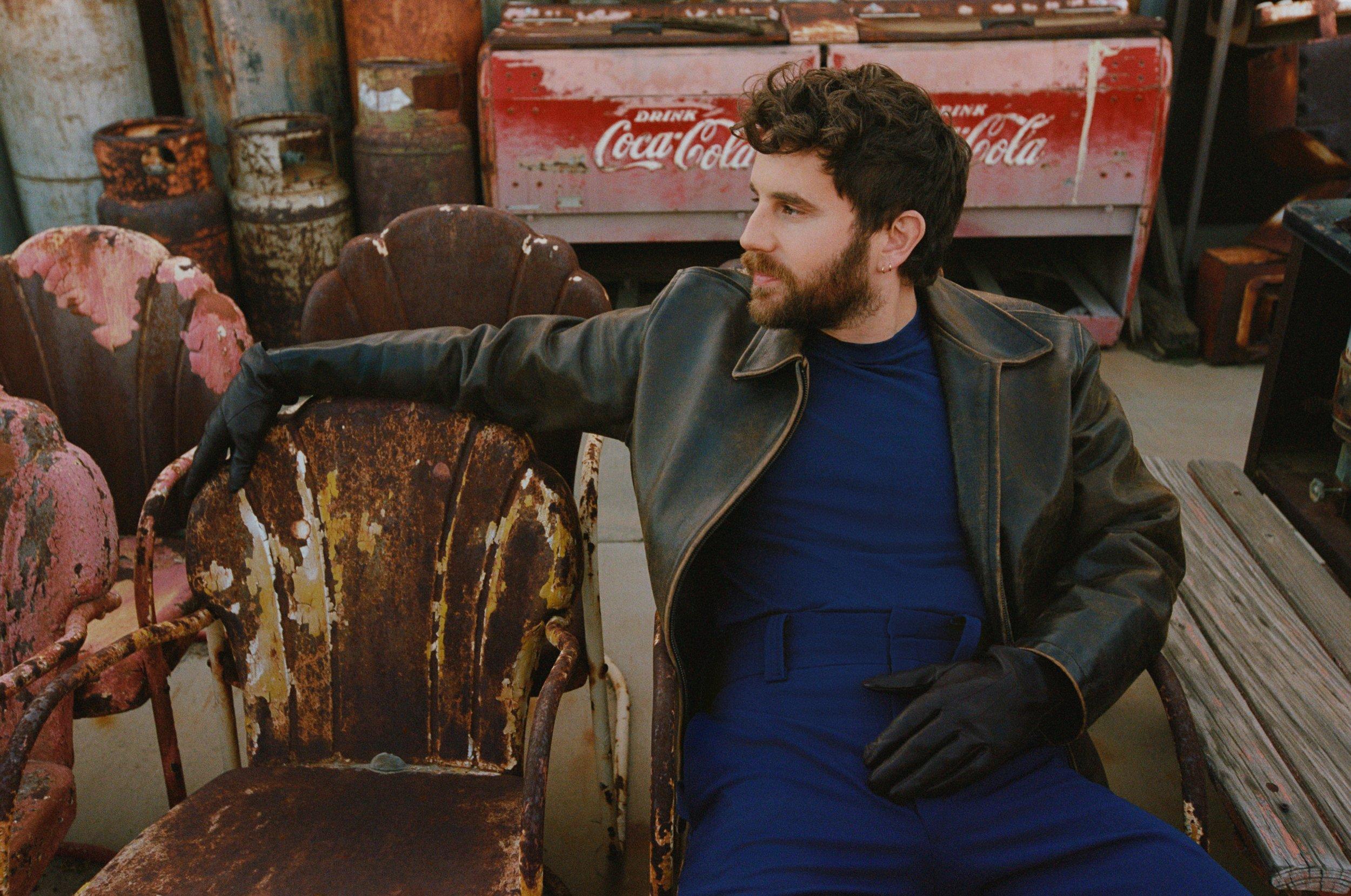
interview
Inside Ben Platt's 'Honeymind': How Queer Love, Live Performance & More Led To His Most Authentic Album Yet
Ben Platt's expansive artistry has taken him from Broadway to the recording studio, and his new album continues this evolution. 'Honeymind' shows Ben Platt at his most honest and vulnerable, embracing a new sound.
Ben Platt has never allowed the world to dictate his fate. The GRAMMY, Tony, and Emmy-winner's artistic outpouring has been relentless, and he's still early in his career.
The 30-year-old actor and singer has performed in Broadway musicals like "Parade" and "Dear Evan Hansen," sold out Madison Square Garden and the Hollywood Bowl as a solo artist, and starred and co-wrote the film Theater Camp. Each project has marked a step into a new direction, but none more so than Honeymind — an album that captures what it's like to chase tender and safe intimacy in partnership, and the ecstasy that follows once found.
His professional growth between 2021's Reverie and Honeymind is apparent not just thematically, but sonically and in production. This latest album sounds natural and lush, with input from GRAMMY-winning producer Dave Cobb and producer/songwriter/multi-instrumentalist Alex Hope. While Honeymind shows a version of Platt some listeners may not be accustomed to, he's never sounded more comfortable in his own skin.
To celebrate the release of Honeymind, Platt will headline a three-week residency in New York City's Palace Theatre and a subsequent nationwide summer tour and serve as the keynote speaker at this year’s GRAMMY U Conference. He spoke with GRAMMY.com about his latest album, upcoming residency, and the beautiful and, at times, tricky trappings of romantic love.
This interview has been edited for clarity. The 2024 GRAMMY U Conference is presented by Amazon Music. Mastercard is also a participating sponsor of the conference.
Honeymind shifts away from the '80s electro-pop of Reverie and your Broadway roots. What made you gravitate towards a more tender, folky sound that exudes warmth and serenity?
The biggest catalyst was that I wanted to go and write Nashville because I admired so many songwriters there. When I started with my first round of writing sessions for this record — which was back in the spring of 2022 — what just very naturally started coming out was this super unadorned, very storytelling-forward type of music.
When I made my first record [2019], it was very close after I had been on Broadway for a long time, and it was theatrically linked. Then, I experimented with leaning into pop and this Peter Gabriel vibe, but it felt like a landing pad this time. I closed my eyes and went, What's the most natural way to communicate in terms of what is specific to me? This seemed to fit really nicely.
You worked with renowned producers like Dave Cobb on this album. There are times when the producer’s work stands out most, but Honeymind sounds like you. How did you ensure that all tracks sounded distinctly like you versus a Dave Cobb song?
I loved the idea of working with Dave! His specialty is unadorned things that are as essential as they can be. When it comes to my own sound, my priority is always obviously storytelling and songwriting, but certainly, to have the vocal performance be very much the focus. Dave was very amenable to that.
I went and wrote the songs with my co-writers before starting work with Dave, and I sort of came in with all of his songs completed. He did a beautiful job of preserving the integrity of the songs I’d written. [He wanted] to present them in as organic and straightforward a way as possible, as opposed to trying to sort of put a secondary sound onto it.
Your previous work has been personal to varying degrees, but your lead single, "Andrew," feels particularly candid.
I wrote that song with Alex Hope, one of my favorite longtime collaborators, and I had a session earlier in the week with someone else who was also wonderful. [This first songwriter] was talking to me about her son, who was 10 or 11, and how he had his best friend, a boy he loved so much. She shared that she had an inclination that more love was going towards this friend and was coming back to him [than] he could even really communicate.
It reminded me so deeply and immediately of so many different experiences growing up: having straight friends in high school and middle school, who you just love and who aren't doing anything wrong, but just by virtue of chemicals and how we're born, you develop feelings that just can't be reciprocated. [That's] such a special kind of melancholy. It's no one's fault, and I hadn't heard that strain of unrequited love and that particular type of melancholy expressed in a song.
The next day, I went in with Alex and pitched them a song, and they're queer as well and understood the perspective, so it came out very quickly.
What about queer love do you find most challenging to articulate?
Developing feelings for people that just don't have it in their blood to feel the same way is a uniquely queer experience, [as is] boundarylessness both positively and negatively. It's very particular to queer love in the sense that there are a lot less societal examples, and sort of prerequisites, for what queer relationships look like or shouldn't be. Which is so freeing and wonderful and makes for a really beautiful, honest relationship. Still, it's also a little scary because you're flying blind in a way that is very particular to being a queer person.
There's an inherent sort of rebellion and statement that you have to be making every day when you're out in the world with your partner as a queer person because there remain so many people who are intolerant, don't understand, and are still fearful and judgmental. It requires an extra bit of courage just to engage in the relationship.
You have a three-week residency at New York City's Palace Theatre, where legends like Elvis Presley, Diana Ross, and Judy Garland performed and will tour afterward. How are you feeling as you prepare for these concerts?
When I finish the record and sit on it, it exists in limbo; I start to second-guess it, feel like I'm losing my connection to it, or forget. I don't feel like I'm in the same place as I was when I wrote these things because they're so intimate.
But for me, the whole shebang has always been getting to perform live, and that's just my greatest joy. The songs are the most mine when I'm singing them live. I also love sharing music with people, and hearing in person and online conversations, about how it applies to their lives, how it reminds them of things, and how they use it. The tour is always the part where I'm the most in love with the album, and when the tour ends, I'm ready to let it out into the world and say goodbye for a minute.
Beyond the risk of trying something new in your career, what roles do failure, trial, and error play in your creative process or other parts of your life?
For every song I've written that I love or even come out, there are eight to 10 that I never want to see in the light of day.
It's hard to find the good things until you throw everything at the wall, and if you're too afraid to fall, then you'll never really try in the first place. And I was privileged because I started working quite young; things went from A to B to C in the sense that they went steadily. As I get older, I learn that a career is more about this longer journey that is not at all linear. Now that I have some hindsight, it's easy to appreciate the down moments and the valleys because that's the only way you recognize when something is going well. I try to be grateful for those moments of failure or misstep when they come because it's an essential part of being an artist — not the funnest part always, but necessary.
You'll be the keynote speaker at the 2024 GRAMMY U Conference for young professionals. What do you want to share most with conference attendees?
I must share my transparency and experiences and try to help learn by failure and success. I've found, in all facets, that specificity begets universality, and I'm trying to be as specifically honest about my role in how I approached songwriting in my own artistry — whether that's something someone will directly connect to, create a tangential connection to something else, or be an example of something that doesn't work for someone.
Art is so tailor-made, so it's just about sharing ideas and seeing what sticks.
New Broadway Musicals To See This Spring: "Hell's Kitchen," "The Wiz" & More
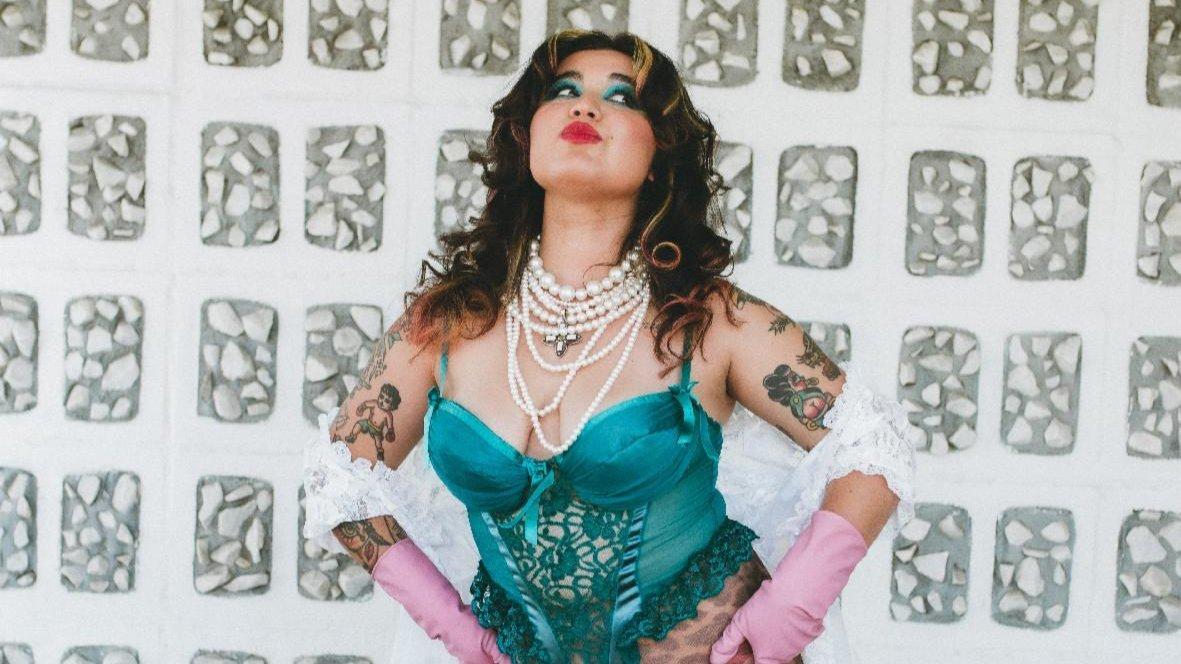
Photo: Ragan Henderson
interview
On New Album 'Big Ideas,' Remi Wolf Delivers Musical Poetry In Motion
Alt-pop favorite Remi Wolf took inventory of her psychological state while on "back-to-back-to-back" tours, and the result is a winning second album: 'Big Ideas.'
How can you write a song, when you have nothing to sing about? One trusty well to return to is life on the road; the musical canon is filled with odes to whizzing highway dividers, beds in strange places and, on occasion, a deteriorating home life.
The buzzy and prolific singer/songwriter Remi Wolf just folded these experiences into Big Ideas — her second full-length album, and one born of perpetual travel, transit and transition. (And, it should be said: her Carmen Sandiego traversals led her to NYC’s 2024 GRAMMY U Conference.)
"Well into my 20s, it was like a second puberty, because essentially, I was reborn as this touring musician," the thoughtful and loquacious indie-popper tells GRAMMY.com, over Zoom from her rehearsal space. (Even then, she's in motion, ducking from room to room to evade clamorous comings and goings.)
She evokes her breakout 2021 debut album: "I'd never toured like that before. My whole entire life felt so new after Juno was released."
This led to a white-hot writing streak. Big Ideas' highlights, like advance singles "Toro" and "Alone in Miami," directly address change and upheaval. Goes the former: "Dancing around and spilling wine/ You look good in my hotel robe." Goes the latter: "Met up with Maine, bought cocaine/ Clothes in the lobby waiting for me."
"There's no frills in that s—," Wolf says. "They're quite literally about real life." Read on for a full interview with Wolf about Big Ideas — a locus of that life, in all its nuances and dimensions.
This interview has been edited for clarity.
I love how funky and rhythmic 'Big Ideas' is. Which rhythms from the musical canon got you going? Are you a Purdie head? A Dan head?
Oh, all of the above. I love a Purdie shuffle. The Purdie shuffle is a pretty legendary groove. I'm a huge fan of Steely Dan. I went to music college; I feel like as a music school student, you kind of have to love Steely Dan. Well, some of the kids choose to hate them, but I chose to love them.
But yeah, I love a funky groove, a funky beat. I also like simple s—, but we love syncopation in this household.
What'd you grow up listening to on that front?
Honestly, not much. I feel like as a young kid, I would just listen to what my parents were listening to, and my dad listened to a lot of '80s classic rock, and my mom really liked Prince.
And then, also, my first album I ever owned was Speak Now by Lindsay Lohan, which is a completely different direction, and I was about eight when I got that album.
I didn't know she made music.
She had a music career. It was brief, but it was mighty, truly. She had all the best songwriters in the industry at the time working on this album. So honestly, even though it wasn't the pinnacle of musicianship, the writing was really good. Great songs.
I just flashed back to Hilary Duff jewel cases in grade school.
Oh, yeah, that's another classic, but I was a little bit more alternative than that. Lindsay Lohan was kind of on more of a pop-punk, like emo front-facing type of songwriting and energy. A little bit more like Alanis Morissette vibes.
If I ever encounter a Lohan song in the wild, I'll remember your recommendation.
When I was a high schooler, that's kind of when I started really listening to a bunch of staff that wasn't playing in my house. And that's when I got into Stevie Wonder and the Beatles and Cake.
I ride for Cake. Great band.
I ride for Cake, too. Honestly, they're one of my favorite bands of all time. I don't know, I feel super similar to them sometimes. Their lyrics are so wacky and sad, kind of — and bizarre, but they're so funky, and the songs are just great, but they're weird.
Take the readers through the span of time between your first album, 'Juno,' up to this sophomore album. What seed was planted?
I released Juno at the end of 2021, and I guess the seed that was birthed after that was that I've essentially been on tour ever since.
This new album, Big Ideas, is kind of the product of: I would go out on tour and come home for a week at a time, because I was on back-to-back-to-back tours. I went on 10 tours in one year; I was only home for about six weeks of all of 2022. And then, going into 2023, I kept touring, and kept doing the same thing.
Watch: GRAMMY Museum Spotlight: Remi Wolf
This album is a collection of all these moments and memories, and getting really focused, short amounts of time with me getting home and kind of exploding songwriting-wise — then, going back on tour and building up s— to talk about, and then exploding once again.
There were about five concentrated week-and-a-half to two-week-long periods of writing that became this album.
Do you get a charge out of touring? I couldn't imagine doing it again.
Yeah. I think that there is an adrenaline that I like about it. I like traveling. I like seeing different cities, even if it's for a couple hours. I really like that.
I like the communal aspect of it. I like getting really close to people and having a routine, to be honest. It's the most routine time of my life. Other than that, when I'm home, I'm just all over the place and doing a bunch of s—, which also has its perks.
But I don't know, there's something about waking up and doing the same thing every day that kind of is nice for me. And it's cool to be able to just focus on one thing, getting to the next city and playing the show and making people happy.
What about your life disappearing temporarily? Leaving a partner, your houseplants…
No, that's really difficult. I luckily don't have a partner right now, but I think that tour is really capable of ruining a lot of relationships, unless you've got a really strong one where they understand the lifestyle and everything. But I've had many houseplants die. It's actually really sad.
Your life just kind of is on pause. It's like a time machine, or a time capsule. Especially living in L.A. where the weather's the same every single day, you come home, and it's exactly the same as when you left the city.
Once the emotional and conceptual pieces were on the floor, how did you assemble 'Big Ideas?'
There are so many iterations of what it could have been. Because like I said, I had five two-week long sections of writing a f— ton of songs. And I'm not kidding, I wrote full albums within those weeks. I would be hunkered.
I had one week in L.A. where it was five days, and we wrote 10 songs. And then I had another week in L.A. We wrote seven songs. And I had another week in New York, and we wrote nine songs. And then another week in New York, and we wrote 12 songs. And then another week finally back in L.A., and we wrote four songs that time.
But essentially, I was kind of just doing what felt right. Until I felt like we had an entire album that was cohesive but expansive in its palette, I kept writing. And then finally, at a certain point, I was like, OK, I feel like we have the record.
But there were moments where I was like, oh, I just wrote an album. I don't have to do anything else. And then a month would go by and I'd be like, I need to do more.
In terms of choosing the songs, I think I was drawn to the songs that felt the most real to me — that continued to feel the most exciting and real to me.
Define "real" in this context.
That is a very difficult question to answer, and I think it is such a gut thing. It's beyond language. I don't know how to describe that. I don't know. If I feel invested. There are certain songs that you write and you like them, but you don't have that same feeling of investment in them.
Does this really need to be heard? Does anybody need this?
Yeah. Or: Do I need this? Honestly, it's so inexplicable.
Do you ever try to work the songwriting muscle of making something specific, universal? Is that part of your calculus?
Typically, it's not, but there's one song that I tried to do it on very intentionally: "Soup."
[I had] the intention of making it a song that was built for an arena in terms of the sonics and the expansiveness of the drums and the four-on-the-floor. In my head, I was like, OK, I want this song to play, and then you see the arena with the people pumping their fists and feet.
I think I'd recently seen Coldplay at Wembley Stadium, and I was like, Holy s—, this is so wild. Their stuff is so arena, stadium-bound. I was inspired by essentially the four-on-the-floor feel — hearing the reverb in the rafters of an arena like that.
Going into writing that song, I was like, this is the song where it would make sense for me to be blunt and universal with my lyrics. And I think it was a cool experiment and honestly quite vulnerable for me, because I think sometimes I shy away from that type of lyric writing, whether it be out of just wanting to be a little bit more artsy.
Sometimes I think it's fear-based, in the sense of: I want to hide, I want to be able to be the only one to really know what I'm talking about sometimes. And I think with "Soup," I kind of just let it fly and let that universality shine through a little bit more.
You don't need to know what songs mean all the time. You mentioned the Beatles: John sang, "Yellow matter custard, dripping from a dead dog's eye."
Yeah. It's syllables, and imagery. This s— can be anything you want to be, and I always try to remember that.
What's coming up in your musical life?
I'm going on tour in the fall; today is our first day of rehearsals. We're starting to put together a big show. More travel, more motion. I never stop moving, essentially. Hopefully I'll be writing more soon.
Explore More Alternative & Indie Music
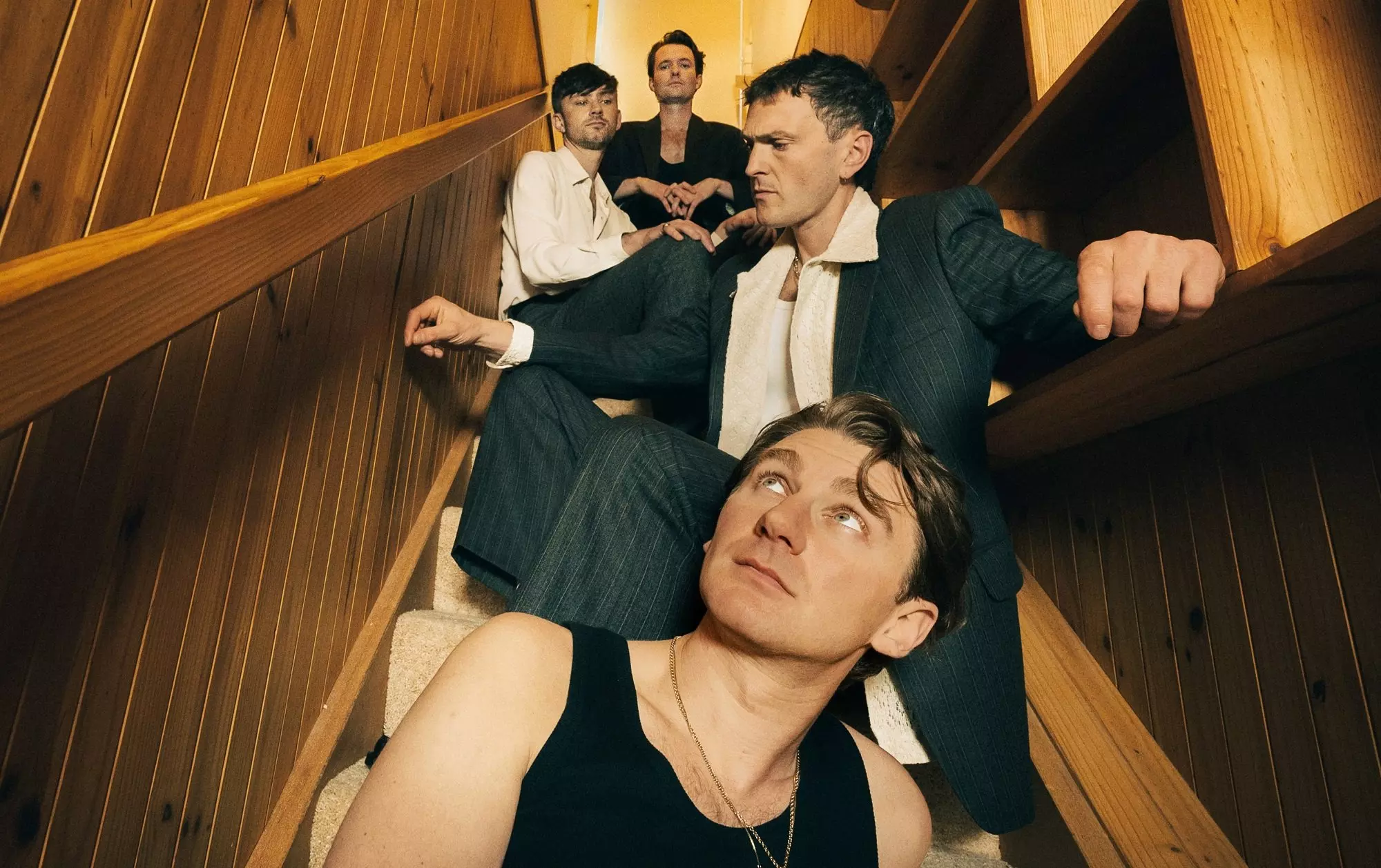
Ladies And Gentlemen, Glass Animals Are Floating In Space

Daniel Nunnelee's "Why Don’t You Just Come Over"
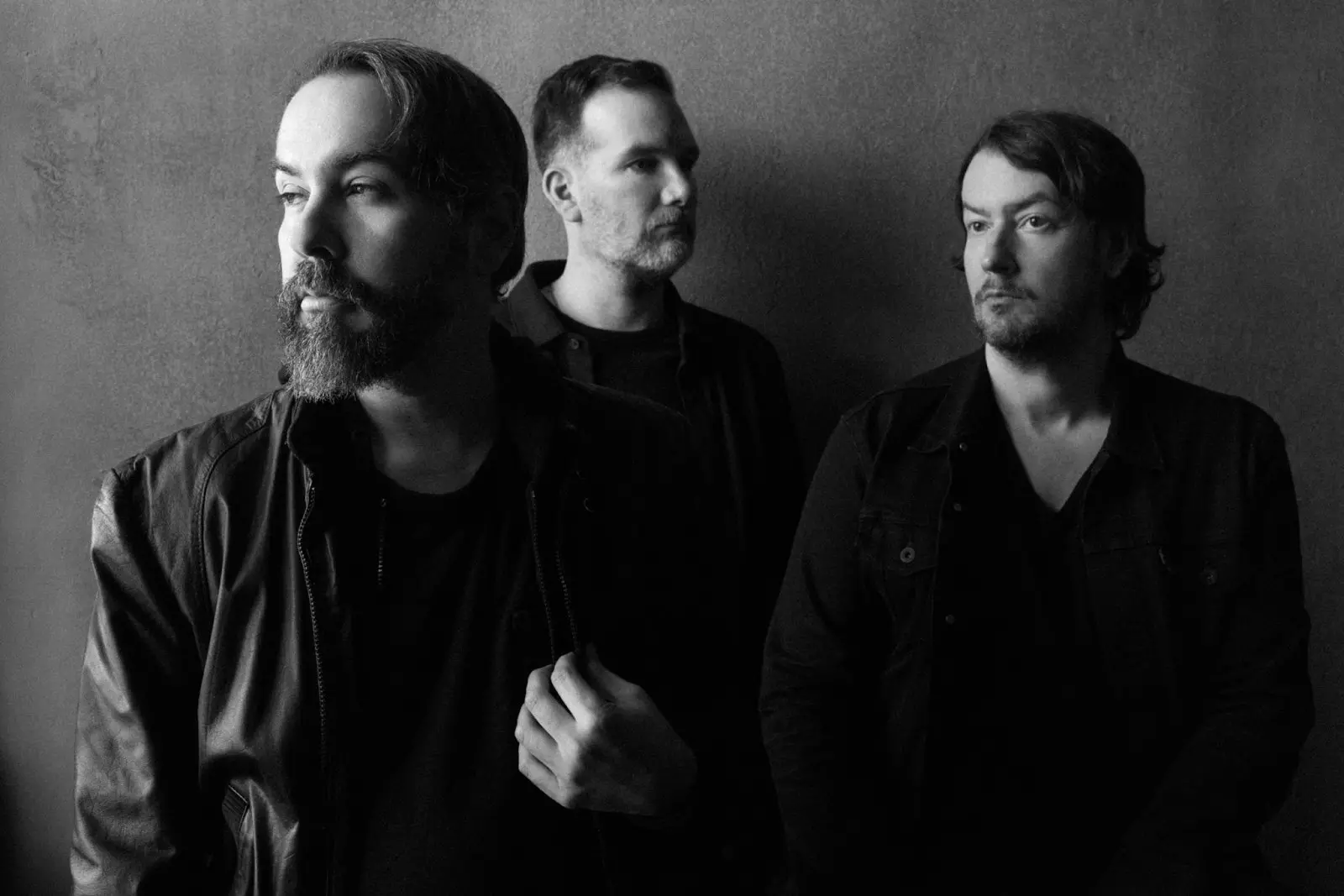
X's Mark The Spot: How Cigarettes After Sex Turn Difficult Memories Into Dreamy Nostalgia
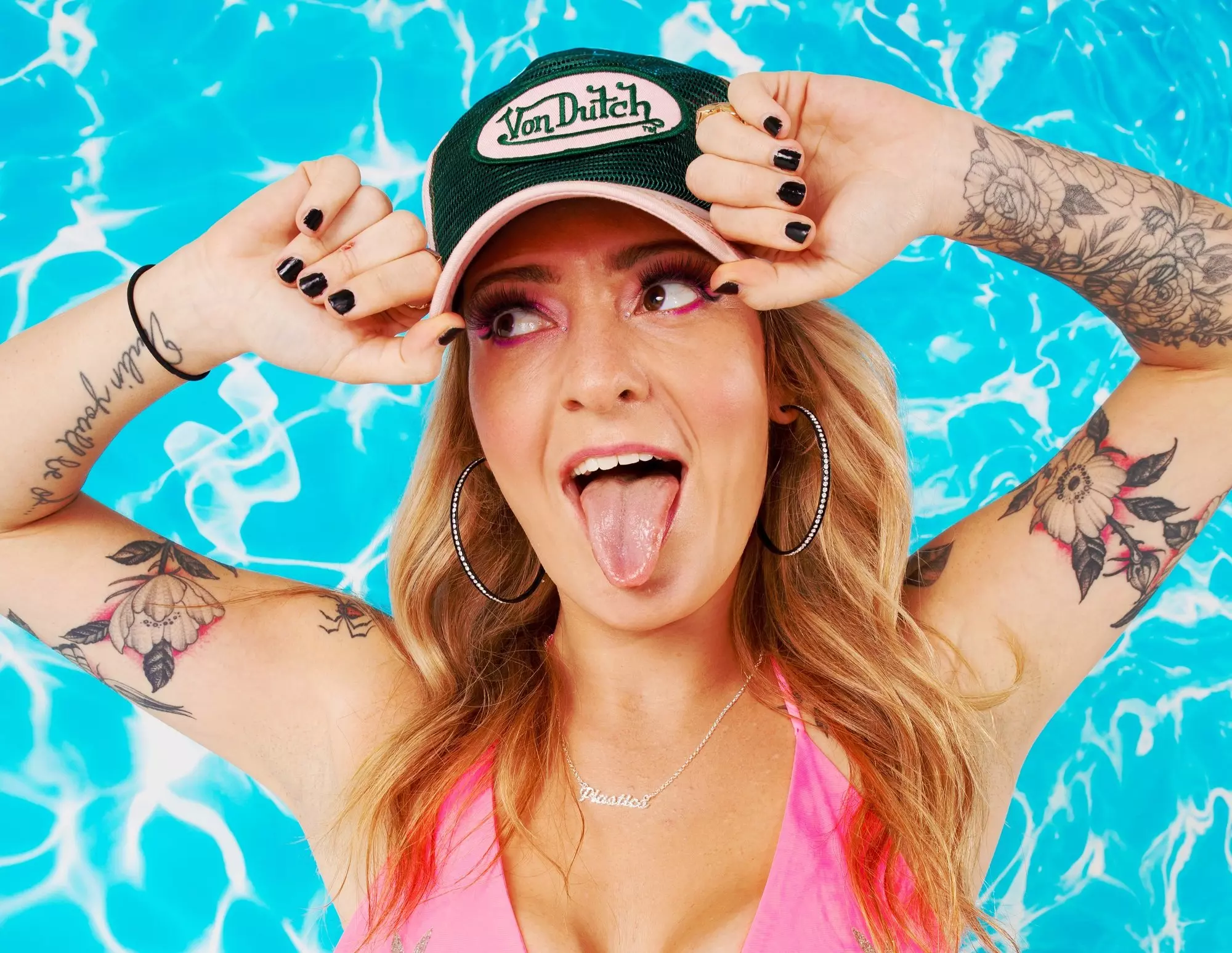
Meet Scene Queen, The "Chaotic Mess" Cleaning Up The Alternative Scene

Where St. Vincent Keeps Her GRAMMY Awards
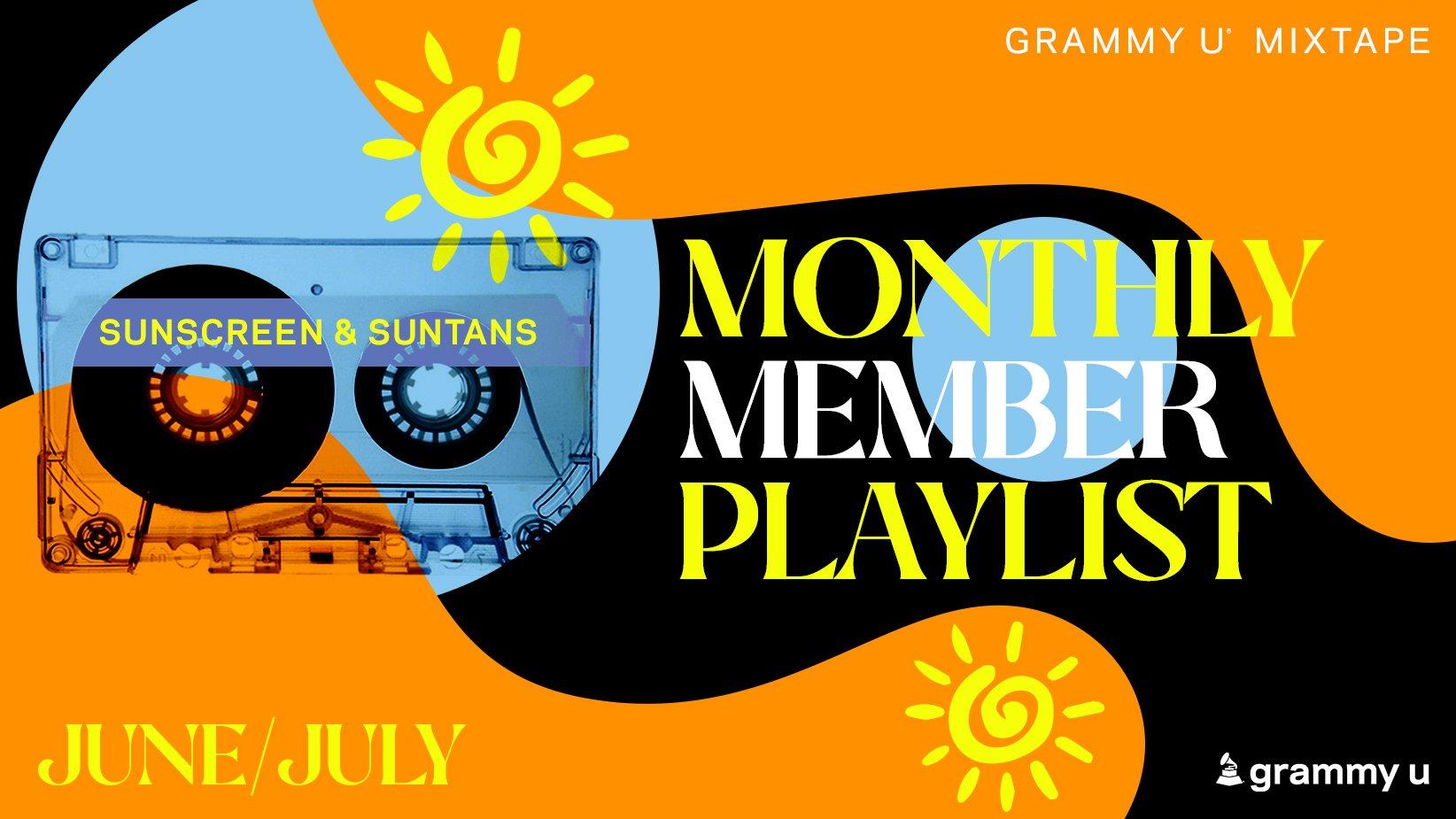
news
Press Play On GRAMMY U Mixtape: Sunscreen & Suntans Monthly Member Playlist
The GRAMMY U Mixtape is a monthly, genre-spanning playlist to quench your thirst for new tunes, all from our talented members. This summer playlist is a vibrant mix of bubblegum pop and soulful tunes that will have you bopping as you soak up the sun.
Did you know that among all GRAMMY U members, songwriting and performance are some of the most sought after fields of study? This playlist dedicates a space to hear what these members are creating today!
The GRAMMY U Mixtape, now available for your listening pleasure, highlights the creations and fresh ideas that members are bringing to this industry directly on the Recording Academy's Spotify, Apple Music, and Amazon Music pages. Our goal is to celebrate GRAMMY U members, as well as the time and effort they put into making original music — from the songwriting process to the final production of the track.
Each month, we accept submissions and feature 15 to 25 songs that match each month’s theme. This summer playlist is vibrant mix of bubblegum pop and soulful tunes that will have you bopping and singing as you soak up the sun. So, what’s stopping you? Press play on GRAMMY U’s Mixtape and listen now on Spotify, Apple Music and Amazon Music.
Want to be featured on the next playlist? Submit your songs today! We are currently accepting submissions for songs of all genres for consideration for our next playlist. Whether you write pop, rock, hip-hop, jazz, or classical, we want to hear from you. Music must be written and/or produced by the member (an original song) and you must be able to submit a Spotify, Apple Music and/or Amazon Music link to the song. Artists must be a GRAMMY U member to submit.
About GRAMMY U:
GRAMMY U is a program that connects aspiring professionals and creatives ages 18-29 with the music industry's brightest and most talented minds. We provide a community for emerging professionals and creatives in addition to various opportunities and tools necessary to start a career in music. Throughout the program year, events and initiatives touch on all facets of the industry, including business, technology, and the creative process.
As part of the Recording Academy's mission to ensure the recorded arts remain a thriving part of our shared cultural heritage, GRAMMY U establishes the necessary foundation for music’s next generation to flourish.
Not a member, but want to submit to our playlist? Apply for GRAMMY U Membership here.
Former GRAMMY U Reps Heather Howard, Sophie Griffiths and Samantha Kopec contributed to this article.
15 Must-Hear Albums In May 2024: Dua Lipa, Billie Eilish, Sia, Zayn & More
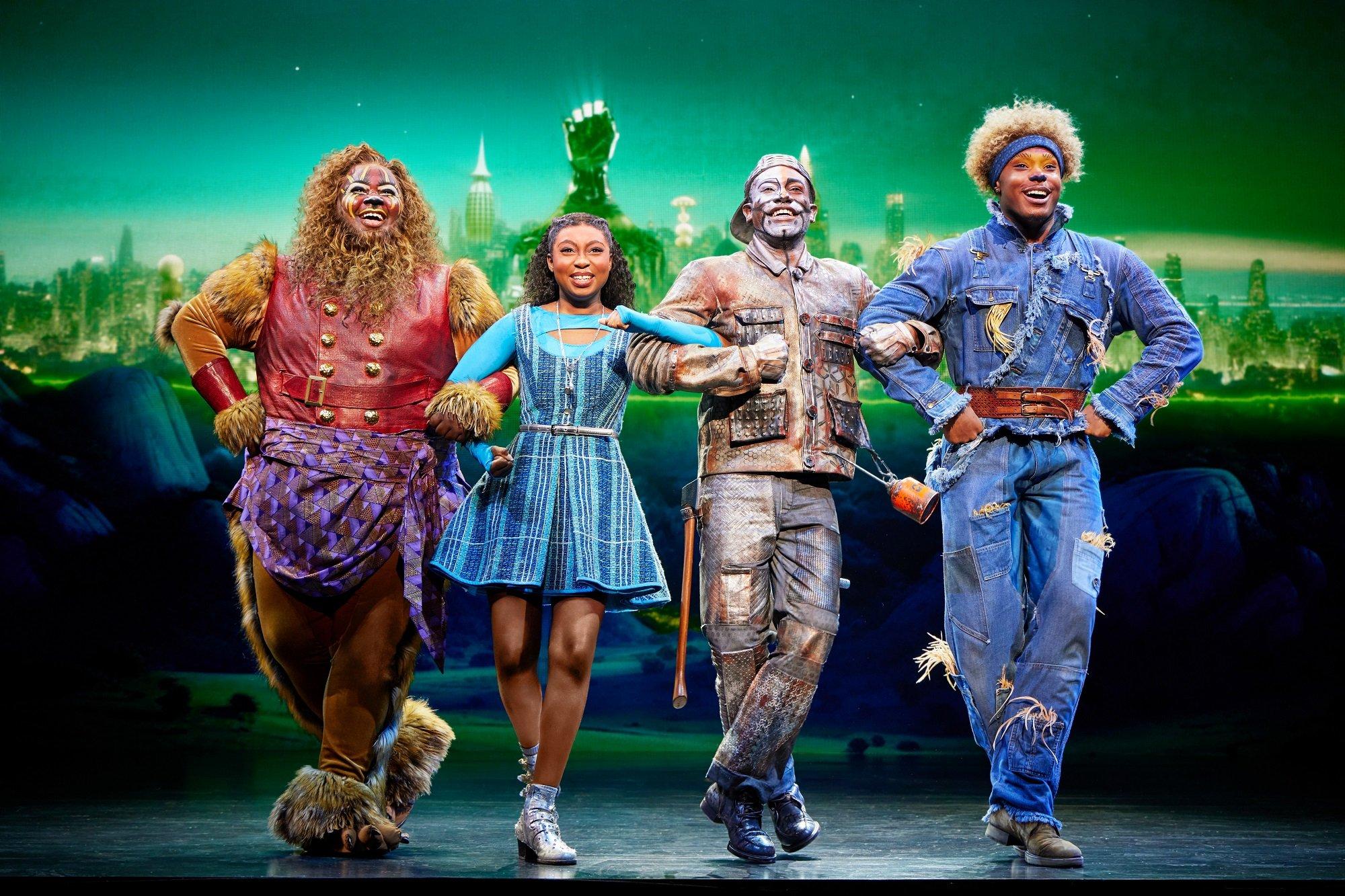
Photo: Jeremy Daniel
feature
50 Years In, "The Wiz" Remains An Inspiration: How A New Recording Repaves The Yellow Brick Road
From original groundbreaking production to its current Broadway revival, "The Wiz" stands the test of time. A new cast recording will be released June 14, which honors the strength of the music and the message behind it.
Of the many reviews of "The Wiz" over the years, one of the most famous comes from none other than Broadway legend Stephen Sondheim.
When asked what his favorite Broadway show is (besides his own), Sondheim named "The Wiz" and said it’s because, "it's the one show which makes you feel better when you come out of it than you did when you walked in."
The original production of "The Wiz" had its pre-Broadway tryout in 1974, with a Broadway premiere in January 1975. In the decades since, it's remained beloved among musical theatre fans, as well as a staple of community theatre. Not only does "The Wiz" boast a 50 year legacy and the distinction of being one of the first shows with an all-Black cast, but the musical itself stands the test of time because of the strength of the music and the message behind it. To accompany a tour and Broadway revival at the Marquis Theatre, the 2024 revival cast recording comes out on June 14, paving the yellow brick road for a new generation of fans to ease on down and enjoy the journey.
While many people remember the 1978 Diana Ross film The Wiz (which also starred a young Michael Jackson), it was a critical and box office flop. The Broadway show, meanwhile, had more success. The show won seven Tony Awards including Best Musical. The original cast recording is the 30th highest selling cast album of all time. In 2017, the original Broadway cast recording of "The Wiz" was selected for preservation in the National Recording Registry by the Library of Congress as being "culturally, historically, or aesthetically significant."
The tale of Dorothoy's arrival in and travels through Oz has been in the cultural lexicon for over 100 years. "The Wonderful Wizard of Oz" was written in 1900 and, 39 years later, the Technicolor Judy Garland movie cemented the iconic story. While "The Wiz" (full title "The Wiz: The Supersoul Musical ‘Wizard of Oz'") is still primarily set in the magical land of Oz, the creators and production team made significant, conscious choices to place "The Wiz" among Black culture of the time. The new production, with an updated book by Amber Ruffin, strives to do the same.
Of "The Wiz," the Smithsonian — which displays costumes from the original production in their National Museum of African American History and Culture — says it is "a tale that celebrates African American street style as a unique subculture and unapologetically American way of life. The song lyrics, script, sets, and costumes all reference and champion the struggles and triumphs of African Americans."
Analysis of the original cast album cites influences from popular music of the time, along with jargon. Most notably, however, and what Sondheim responded to, is that all the songs in "The Wiz" have a message and emotional core that moves the story forward both literally and within each characters’ arc. Instead of the repetitive "Follow the Yellow Brick Road" from the film, "The Wiz’s" "Ease on Down the Road" encourages the characters and then the audience to keep on keeping on with their goals. Lyrics such as "Cause there may be times/ When you think you lost your mind/ And the steps you're takin'/ Leave you three, four steps behind/ But the road you're walking/ Might be long sometimes/ You just keep on truckin'/ And you'll just be fine, yeah," can be applied to anyone’s life problems — not just Dorothy and Company on their fantastical journey.
After vanquishing the Wicked Witch, Evilene, the principals and ensemble sing, "Everybody Rejoice/ Brand New Day," a celebratory song that exudes joy. They sing, "We always knew that we'd be free somehow," which, when placed in American theatre and sung by an all Black ensemble, holds more historical significance than a simple song about escaping capture. Glinda appears and doesn’t just tell Dororthy to click her heels; she tells her to "Believe in Yourself" not only that she can go home, but that she should believe in her own feelings and power inside her heart.
Finally, "Home," which some say takes the place of the classic "Somewhere Over the Rainbow," speaks to a broader character arc and feels more like a pop anthem than a musical theatre song. It has been released as a single throughout the show’s history, including last year by Brandi Carlile to go with the "Ted Lasso" finale. While Garland’s Dorothy learns in the end, "There’s no place like home," "The Wiz’s" Dorothy sings, "And I've learned that we must look/ Inside our hearts to find/ A world full of love/ Like yours, like mine/ Like home."
The original Broadway cast recording is hard to find. It can be purchased on streaming services like Apple, but on Spotify, only the single version of "Home" is playable. "The Wiz: Live!," a well-received televised version, does have a readily streamable soundtrack, but a new Broadway cast album is very welcome. The cast features Nichelle Lewis as Dorothy and television and Broadway veteran Wayne Brady as the titular role; the stage production updates both script and set to feel more more contemporary. Meanwhile, the score has been lightly "refurbished" with additional songs.
"The original ‘Wiz’ was a definitive product of the 1970s in its glam and excess," Brady told the New York Times. "Ours is of this time: We have this place and can just be. From the queerness onstage to the costumes, the musicality, light and bricks. I think instead of fighting to be seen, this ‘Wiz’ is, ‘Oh, you see us.’"
Sondheim’s praise of "The Wiz" is particularly magnanimous because Sondheim’s own show "Gypsy" had a revival in 1974, the same year as the original production of "The Wiz," which meant the two shows battled it out both in box office and awards. A revival of "Gypsy" starring Audra McDonald and directed by George C. Wolfe has just been announced, so both "The Wiz" and "Gypsy" will again be on Broadway. This time, both shows will be led by Black actors and directors.
Broadway has struggled post-pandemic, and America has a lot to learn about love when it comes to race, but, with the release of "The Wiz" back into the world, we get a much-needed infusion of joy. Throughout the last 50 years, there have been many stories and real events that point to a world that is anything but full of love, but, through it all, "The Wiz" holds onto hope.
New Broadway Musicals To See This Spring: "Hell's Kitchen," "The Wiz" & More
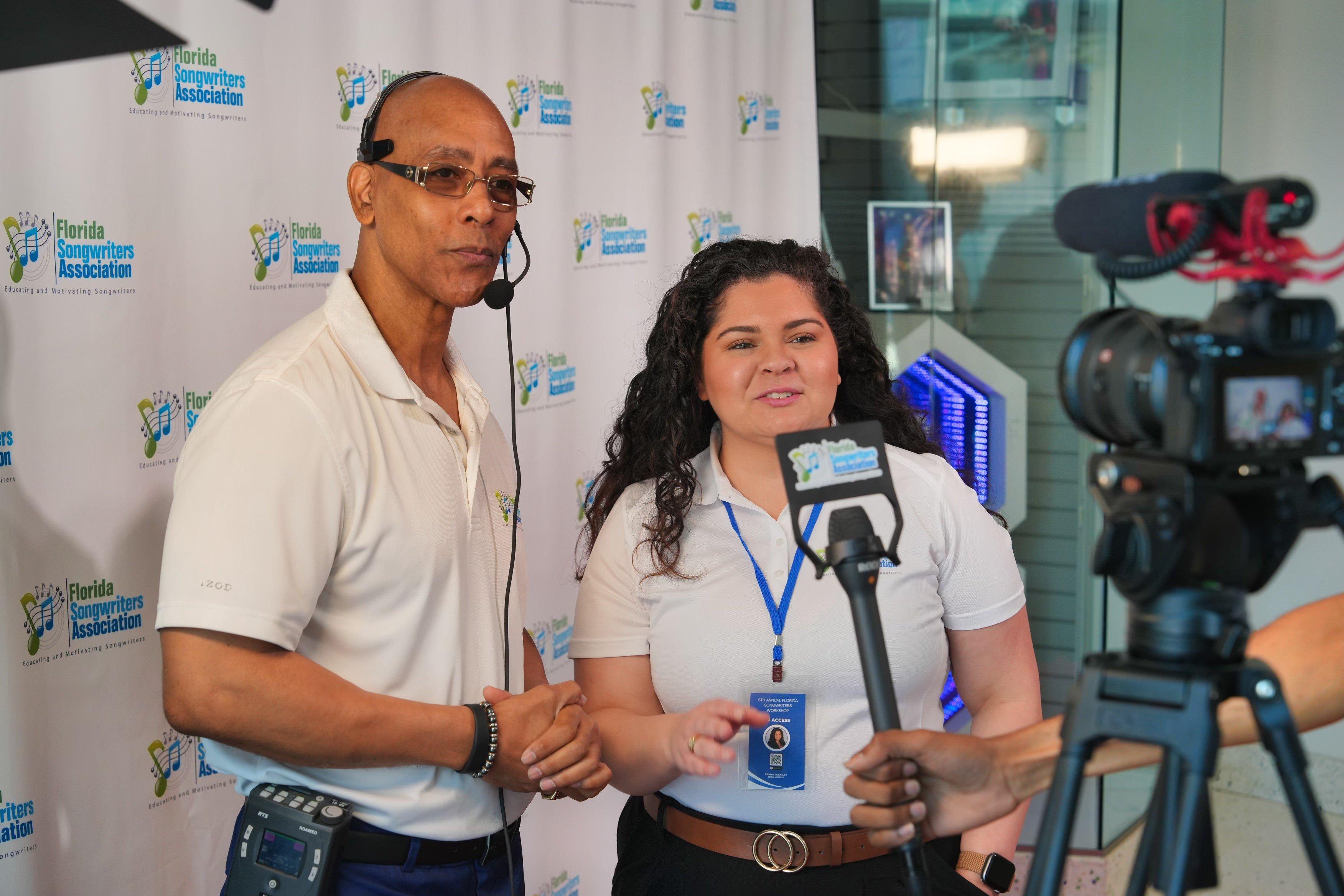
Photo courtesy of Steve Lane and Zayna JeBailey
interview
6 Standout Stories From The 2023-24 GRAMMY U Mentorship Program
The GRAMMY U mentorship program pairs members and experienced music industry personnel. Read on for stories from six successful mentors and mentees from the 2023-24 program year.
With the newly expanded eligibility for GRAMMY U membership, the GRAMMY U mentorship program has also shifted significantly this year. For the very first time, the mentorship program timeline lasted for an entire year, rather than being split into two semesters. The longer timeframe allowed the mentorship pairs to meet more frequently, take on bigger projects, and develop deeper connections.
Through the program, GRAMMY U members from around the world receive one-on-one guidance from seasoned music industry professionals. Mentors and mentees have the flexibility to select their specific track within the music business, including performance, songwriting/composing, marketing, or the general music industry. Pairs are aligned as closely as possible, and match mentees with mentors in roles that reflect their interests.
With over 600 pairings across the 12 Recording Academy Chapters, hundreds of members had the chance to work on amazing projects or participate in once-in-a-lifetime opportunities, all thanks to their mentors. Read on to hear about six outstanding pairs from the 2023-24 GRAMMY U Mentorship Program.
Andre Gibson | Mentor | Chicago Chapter
Lylajean Bariso | Mentee | Chicago Chapter
Andre Gibson and Lylajean Bariso were paired to focus on songwriting and vocal performance. Gibson is currently the President and Owner of Chiat Records, while Bariso majors in creative writing at Northwestern University.
During this year’s mentorship program, Bariso had the unique opportunity to advance her music career. Under Gibson’s guidance, she participated in her first professional studio recording session and registered with a performing rights organization, enabling her to copyright her music.
Although Bariso is not enrolled in her school’s music program, music is one of her most passionate hobbies. After participating in this year's mentorship program with Gibson, her perspective has shifted.
"I've felt discouraged from pursuing music as a full-time career for most of my life, even though it's definitely a dream that's out there and high up for me," Bariso says. "However, I really appreciated that Andre took me seriously as a musical artist and supported the idea of me doing this as a career and following the same practices as professionals in the industry."
Steve Lane | Mentor | Florida Chapter
Zayna JeBailey | Mentee | Florida Chapter
Zayna JeBailey, a music business and entertainment industries graduate from the University of Miami, was paired with Steve Lane, Executive Director of the Florida Songwriters Association. At the start of the program, JeBailey hoped to gain a deeper understanding about the industry through hands-on experience; with Lane as a mentor, she accomplished that goal.
Over the past few months, JeBailey has worked on the Florida Songwriters Association podcast, assisting with everything from setting up equipment to filming. Additionally, she helped organize the 5th Annual Florida Songwriters Association Workshop, hosted at Full Sail University. The workshop offered networking opportunities and featured panels with multiple industry professionals.
"Graduating with my bachelor's back in December left me feeling a bit lost about where to go next," says JeBailey, who will continue to work for the Florida Songwriters Association on projects for youth and young adults in Central Florida. She'll also continue to work on the organization's podcast and next year's workshop. "My mentor's advice and guidance this year, and the connections I have made while working with him, have provided a space for me to discover my next endeavors."
Rachel Levy | Mentor | Los Angeles Chapter
Joshya Gupta | Mentee | Los Angeles Chapter
Joshya Gupta, a music industry major at the University of California, Los Angeles, was paired with Rachel Levy, the Executive Vice President of Film Music at Universal Pictures. Acknowledging the significant impact mentors have on shaping young minds, Levy reflects on how mentorship shaped her own early experiences in the industry.
"I was also lucky enough to have a few mentors when I started out in this business that really had an effect on me," Levy says. “So, it’s been great to be able to do that regularly for the college students I have been connected with."
During the mentorship program, Gupta visited Levy's office at NBCUniversal and shadowed her during her day-to-day routines. During this experience, Gupta gained valuable insights into the world of film music and the various responsibilities associated with the role. Through Levy's guidance, Gupta successfully secured her dream internship at NBCUniversal.
"My goal is to work in film music and my mentor has been instrumental in propelling me towards that aspiration," says Gupta. "Beyond mentorship, she has facilitated opportunities for me to connect with her colleagues, broadening my network and deepening my understanding of the field."
Corynne Burrows | Mentor | Los Angeles Chapter
Jaida Brown | Mentee | Los Angeles Chapter
Hoping to sharpen her skills as a confident content creator, Jaida Brown, a music business student at The Los Angeles Film School, was paired with Corynne Burrows, the founder & CEO of Midas Touch Management.
"I have learned how important it is to surround yourself with people who have a constant desire to grow and to have fresh perspectives from others to be able to help you see all sides of situations," Burrows says.
During the mentorship program, Burrows and Brown focused on taking Brown’s career as a performing artist to the next level. Creating her press kit and logo were among the projects the pair tackled throughout the year, ultimately transforming Brown’s brand as an artist.
Ben Raznick | Mentor | San Francisco Chapter
Jack Bunch | Mentee | San Francisco Chapter
Over in the San Francisco Chapter, Jack Bunch, a rising sophomore at the University of California, Berkeley, Bunch was matched with Ben Raznick, a Governor for the San Francisco Chapter Board of the Recording Academy. With the help of Raznick, Bunch was able to realize that his aspirations within the industry are far more attainable than he originally believed.
"Ben helped me realize the realities I look up to aren’t so far away. I listen to dozens of self-produced, prodigious, and seemingly thriving musicians, and I’ve felt far removed from them in the past," Bunch reflects. "Now that I’ve begun taking the time to develop skills, set goals, and take tangible steps, I know I can become the artist I want to be."
Raznick also gleaned insight from his mentee during the program. Upon listening to Bunch’s EP, Raznick learned about music tools that he had "never heard of before," which opened his eyes to some of the latest trends and techniques within the fast-paced industry.
"I felt inspired by Jack’s engagement in our meetings," says Raznick. "It was rewarding to spend time with a young artist that reminded me of myself when I began exploring music as a career."
Jake Roggenbuck | Mentor | Nashville Chapter
Anisa Utilla | Mentee | Nashville Chapter
Anisa Utilla, a human and organizational development major at Vanderbilt University, joined the GRAMMY U mentorship program to gain hands-on insight into the music business, which her formal education lacked. She was paired with Jake Roggenbuck, the Senior Manager of Production at Universal Music Group in Nashville.
"Music acts as a universal language, bridging people together. I knew I wanted to be a part of that with more of a business lens," says Utilla. "I have a dream to become a record label executive, but through my classes and internet research, it was hard to understand what the day-to-day work in a label is actually like. Jake showed me that. Through his mentorship, I learned things I couldn't learn in a classroom setting."
Roggenbuck has been actively involved in the GRAMMY U Mentorship program since 2022. He notes that serving as a mentor is a reciprocal experience, as he gains valuable knowledge from his mentees as well.
"I have learned so many lessons from my mentees and can honestly say I get as much out of the program as I give," says Roggenbuck. The biggest takeaway for me is the enthusiasm and passion that my mentees have. It brings me back to a time when I dreamt of working in the music industry and is a reminder of how lucky I am to have a career I’m passionate about."
The GRAMMY U mentorship program allows members to gain invaluable guidance from an experienced music industry professional from multiple tracks within the industry. Results from the program include expanded networks, newfound industry advice, career opportunities, and more. If you are interested in becoming a mentee or mentor for the 2024-25 GRAMMY U mentorship program, be sure to keep an eye out for applications opening in Fall 2024.
